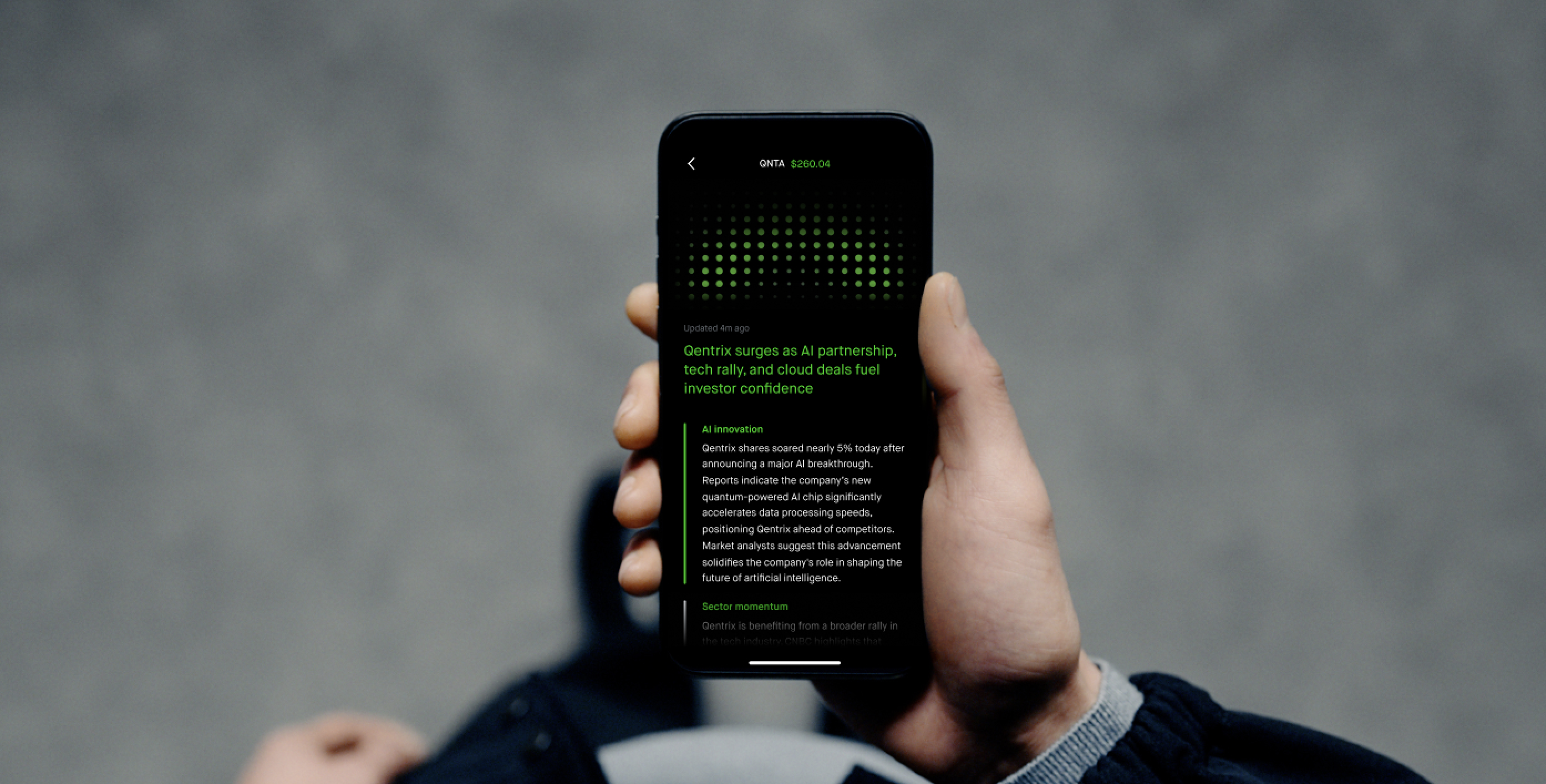

Some in financial services view Robinhood as a kindly-framed “disruptor,” while others criticize its gamified approach to investing. However, there’s no denying the eye-popping performance of the company’s stock this year.
Robinhood Markets (HOOD) closed around $106.23 per share on Wednesday, good for a 175% year to date increase and is up nearly 440% over the past year. Robinhood’s surge has been even greater than that of Wall Street latest’s AI darling, Palantir Technologies, which is up 105% YTD and 383% over the past year as of Wednesday’s closing price around $156.10 per share.
Earlier this week, Robinhood rolled out a free AI investment assistant in its UK app that provides summaries to users on why specific stock prices are moving. Meanwhile in the US, Robinhood has expanded its push into sports wagering with its launch of prediction markets for the NFL and college football, as the company’s app further blurs lines between investing and gambling.

Stephen Kolano, chief investment officer at Integrated Partners, a hybrid RIA that advises on over $21 billion in clients, highlighted several themes behind Robinhood’s surging stock. Themes include its ties to the AI sector, its cryptocurrency brokerage amid landmark crypto legislation from the Trump Administration, and the app’s young user base is prime-positioned to benefit from the Great Wealth Transfer. Earlier this year, Robinhood said its median user age was 35 years old.
“I think there's probably four or five trends in there that have strong secular tailwinds behind [Robinhood] to explain its significant rise from around $20 to around $105 today in the last 12 or 18 months,” Kolano told InvestmentNews.
"Digests by Robinhood Cortex is our first AI insight tool - built directly into our app," Jordan Sinclair, president at Robinhood UK, said in a statement. "We will keep introducing AI tools that prioritise customer education and help our investors navigate the market with confidence."
At HOOD's current market cap of $95 billion, Kolano foresees Robinhood’s stock on a path towards entering major indexes such as the S&P 500.
“It seems to be on the path toward that,” Kolano said. “I don't see a reason why it wouldn't potentially become included at some point based off the criteria of whatever index provider you're looking at, whether S&P, FTSE, MSCI, etc. With that in the inclusion of any index, you're going to see more capital flow to it because of the passive index replicators and providers.”
Robinhood’s push into the RIA industry includes its upcoming client referral program launched with TradePMR, the Florida-based custodial platform that Robinhood bought for $300 million last year. Robinhood reported having 27.4 million users and an Adjusted EBITDA (non-GAAP) increase of 82% year-over-year to $549 million in the company’s second quarter earnings.
“You're looking at 250 million adults in America over 18 years old, almost 10% of all adults have a Robinhood account,” said Gabriel Shahin, founder of California-based RIA Falcon Wealth Planning. It's very hard to bet against a company that has over 10% of adults as users.”
Shahin, whose RIA manages about $1.2 billion in client assets, added that “a lot of our clients, even in their mid to late 60s, have Robinhood accounts,” including one client who owns about 7,500 shares in HOOD. Another tailwind for Robinhood is its credit card (Robinhood Gold Card) that offers 3% cash back on all purchases and 5% cash back on travel booked through the Robinhood travel portal.
“The company's profitable. And you still have people on a waiting list for a credit card — we're talking about hundreds of thousands of people. It's literally the best credit card there is out there,” Shahin said. “They have all your information on where you work, how long you work, how much you make, what your credit history is. This company is just almost a data aggregation company. What can they do with all the information? It's kind of genius."

Firms in New York and Arizona are the latest additions to the mega-RIA

The agent, Todd Bernstein, 67, has been charged with four counts of insurance fraud linked to allegedly switching clients from one set of annuities to another.

“While harm certainly occurred, it was not the cataclysmic harm that can justify a nearly half billion-dollar award to the State,” Justice Peter Moulton wrote, while Trump will face limits in his ability to do business in New York.

Sieg, 58, was head of Merrill Wealth Management, left in 2023 and returned that September to Citigroup, where he worked before being hired by Merrill Lynch in 2009.

Technology can do a lot of things, but advisors still have undeniable value
Orion's Tom Wilson on delivering coordinated, high-touch service in a world where returns alone no longer set you apart.
Barely a decade old, registered index-linked annuities have quickly surged in popularity, thanks to their unique blend of protection and growth potential—an appealing option for investors looking to chart a steadier course through today's choppy market waters, says Myles Lambert, Brighthouse Financial.
